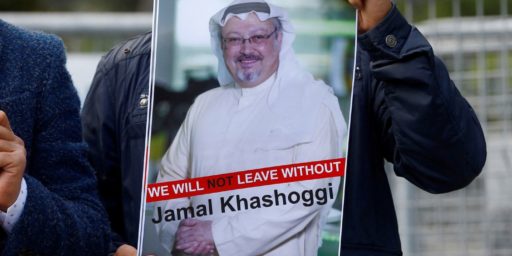Hajj Stampede
UPI reports on a problem I was decidedly unaware existed:
Swamped by ever-growing numbers of pilgrims, Saudi Arabia’s Prince Sultan, second deputy premier and minister of defense and aviation, is urging domestic regulations enacted five years ago prohibiting Saudi believers from undertaking the hajj more than once every five years must be extended to foreign Muslims as well. Sultan said, “Some of them have performed Hajj five to 10 times. Regulations must be enforced in future so that people have to wait five years before repeating Hajj.” The masses of people have repeatedly led to crises, most recent when 251 pilgrims were crushed to death during a stampede at Jamrat during the recently concluded Hajj. Sultan added optimistically, “We hope things will be better next year and in the coming years.”
Well, this would certainly seem a self-correcting problem, as more trampling would both thin the crowds and serve as a disincentive to all but the most zealous. In the short term, though, one wonders whether a hefty hajj tax imposed on foreigners wouldn’t be more useful than trying to establish who has exceeded their pilgramage quota. Or, perhaps, they could try to create an event out of this similar to the running of the bulls at Pamplona.





As in “The Running of the Pilgrims”?
A flat tax on pilgrims would be cutting off their noses to spite their faces – many muslims, especially those from more distant lands, would be unable to afford the trip at all. A sliding scale, though, increasing for each subsequent trip to Mecca, might just do it.
Wow. That sounds almost like… capitalism… hmmm…
I figure you’d just tax white people. They’ve got money.